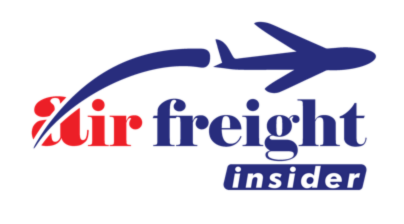Daily Briefing – August 26, 2025
Welcome to your daily snapshot of the air cargo industry: today we bring you key developments on fleet expansions, digital innovations, operational challenges, and evolving passenger and cargo trends across the globe. Let’s dive into the latest updates shaping logistics professionals’ world.
Fleet and Capacity Updates: AIR ONE and Boeing’s Milestones
AIR ONE International Holdings has officially introduced its first Boeing 777 freighter into global operations following a handover at Boeing’s Everett facility. This new aircraft is the first of two 777Fs acquired by AeroTransCargo FZE and signals AIR ONE’s strategy to boost long-haul cargo capacity amid growing demand.
Adding to Boeing’s recent activity, the last of approximately 450 Boeing 737 Max jets stored at Moses Lake, Washington, was flown out mid-August, marking the conclusion of a six-year storage period. This delivery aligns with Boeing’s recovery and ramp-up plans for the 737 Max program after prior pauses. As reported by aeroTELEGRAPH and airliners.de.
Airline Network and Passenger Experience Enhancements
Eurowings is launching a new winter route connecting Stuttgart to Amman, Jordan, starting October 27, initially with weekly flights and increasing to twice weekly during peak winter months. This addition expands Eurowings’ footprint in the Middle East.
Meanwhile, Chicago O’Hare Airport is evolving beyond a transit hub into an engaging destination by adding mini golf, driving ranges, new lounges, and relaxation zones. The airport hopes these amenities will help shed its reputation for long, tedious waits and boost passenger satisfaction.
Celebrating milestones, EasyJet marks 20 years of operation at Hamburg Airport, recently welcoming its 11-millionth passenger on a flight to Rome – a testament to the sustained strength of intra-European low-cost travel.
Cathay Cargo’s Growth and Asia Travel Trends
Cathay Pacific Cargo reported an 11% year-on-year increase in July volumes, transporting 140,156 tonnes of freight, driven by robust demand across Asia. Available Freight Tonne Kilometers (AFTKs) also rose over 11%, underscoring strong market fundamentals in the region amid loosening travel restrictions.
Supporting this, tourism insights from Tourasia, in cooperation with Cathay Pacific, point to a revival in travel interest for destinations like Japan, Korea, and Hong Kong, as easing entry requirements open new opportunities.
Digital Innovation and Process Improvements
Lufthansa Cargo continues to streamline its customer experience, unveiling upgraded digital services aimed at reducing booking times and improving shipment tracking transparency. Their revamped online booking platform has halved the average booking time, enabling faster and simpler freight transactions.
Operational and Regulatory Challenges
Shippers face disruptions as postal services from multiple European countries to the US remain suspended, prompting calls to “get creative” in handling shipments until normal operations resume. This ongoing interruption adds complexity to international logistics chains.
In another region, the British International Freight Association (BIFA) welcomed the UK government’s decision to pause new border controls on goods from the EU and EFTA, a move that helps ease ongoing tensions and supports trade continuity while sanitary and phytosanitary negotiations continue.
Meanwhile, Russia’s Volga-Dnepr Group’s founder hinted at a potential company nationalization by year-end, signaling possible shifts in the air cargo landscape on that front.
Industry Insights and Sustainability Initiatives
Swiss has entered a long-term partnership with technology startup Neustark to permanently store CO2 emissions from biogas plants in concrete, a push towards innovative carbon footprint reduction within aviation’s environmental efforts.
On the tech side, a guest commentary highlights the gap between marketed “autonomous” robotics in air freight and practical reality, pointing out that many solutions are more automated than truly autonomous. Investments in trials often lack clarity on actual autonomy targets—a caution for industry adopters.
Additional Highlights
- DSV faces mounting pressures from tariffs, a slow peak season, and margin squeezes amid workforce expansion, conjuring a “perfect storm” impacting its operational outlook.
- The Deutsche Flugsicherung moves forward with modernizing its Munich backup air traffic control system, transitioning towards a cloud-based platform with new technical components from Frequentis.
- On a human interest note, a young pilot’s journey overcoming financial barriers to build a cockpit career shows determination echoing across the industry’s talent pipeline.
- Finally, Volt reiterates its push for a kerosene-fueled short-haul flight ban for distances under 650 kilometers, targeting emissions cutbacks on European routes.
That wraps up today’s briefing. Stay tuned for more updates as global air cargo continues its dynamic evolution.
